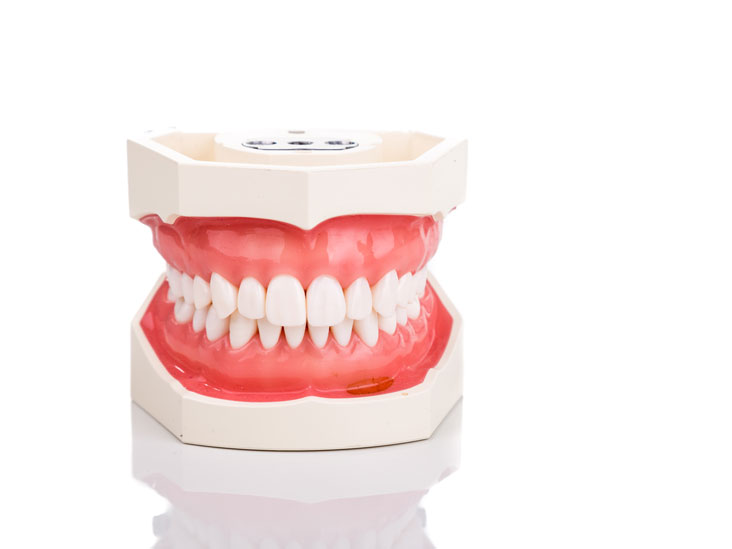Women have unique oral health concerns. Changing hormone levels during your menstrual cycle, pregnancy, and menopause can raise your risk of problems in your mouth, teeth, or gums. Health issues such as diabetes can also affect your oral health. Regular brushing, flossing, and dentist visits can help prevent disease in your mouth and the rest of your body.
Oral health is the health of your mouth, including your teeth, gums, throat, and the bones around the mouth.
Oral health problems, such as gum disease, might be a sign that you have other health problems. Gum diseases are infections caused by plaque, which is a sticky film of bacteria that forms on your teeth. If left untreated, the bacteria in plaque can destroy the tissue and bone around your teeth, leading to tooth loss. The bacteria can travel throughout your body and make you sick. Infections in your mouth can also affect your unborn baby if you are pregnant.
How often should I brush and floss my teeth?
Dentists recommend that everyone brush their teeth at least twice a day with fluoride toothpaste and floss once a day.1 Flossing removes plaque between your teeth, a place that you can’t reach by brushing. You can also remove this plaque with tools other than floss. These tools, called interdental cleaners (link is external), include wooden or plastic picks and water flossers.
How often should I visit the dentist?
Most people should go to the dentist once or twice a year.
Your dentist may suggest that you come more often if you have a health problem such as diabetes or a weakened immune system. These health problems can make you more likely to develop gum disease or other dental diseases.
Women are also at higher risk of gum disease during pregnancy. And gum problems and bone loss may happen more quickly in women after menopause. Talk to your dentist about how often you should visit.
How do women’s hormones affect oral health?
Changing hormone levels at different stages of a woman’s life can affect oral health. When your hormone levels change, your gums can get swollen and irritated. Your gums may also bleed, especially during pregnancy, when your body’s immune system is more sensitive than usual. This can cause inflammation (redness, swelling, and sometimes pain) in the gums. Regular, careful brushing and flossing can lessen gum irritation and bleeding.
Other causes of changing hormone levels that may affect your oral health include; menstrual cycle, hormonal birth control and menopause.
How does my menstrual cycle affect oral health?
Hormone levels go up and down throughout your menstrual cycle. During ovulation and a few days before you start your period, higher levels of the hormone progesterone may cause swelling in your gums. Your gums may be red and bleed more than usual.
You may also get canker sores more often during your menstrual period. Canker sores are small ulcers that have a white or gray base and a red border. Canker sores are not the same thing as cold sores, which are caused by herpes simplex virus type 1 (HSV-1). Canker sores are inside the mouth. Herpes cold sores are on the mouth and lips. You can’t pass canker sores to another person, but you can pass herpes cold sores to another person.
How does birth control affect oral health?
Pregnancy can make brushing difficult. Some women experience nausea from strongly flavored toothpastes. Switching to neutral-flavored toothpaste may help. During pregnancy, your hormone levels also go up and down. This raises your risk for several oral health problems:
Severe gum disease (periodontitis): Changing hormone levels during pregnancy can make gum disease worse or lead to severe gum disease in as many as 2 in 5 pregnant women. Periodontitis is an infection of the tissues that hold your teeth in place. It’s usually caused by not brushing and flossing, or brushing and flossing in a way that allows plaque — a sticky film of bacteria — to build up on the teeth and harden. Periodontitis can cause sore, bleeding gums, painful chewing, and tooth loss. Women who do not get regular dental care and women who smoke are more likely to have periodontitis.
Loose teeth: The tissue supporting your teeth may loosen during pregnancy since many of your joints and tissues loosen in preparation for childbirth. Taking good care of your mouth can help prevent tooth loss.
Wearing down of your tooth enamel: If you have morning sickness that causes vomiting, the stomach acid that comes up during vomiting can erode tooth enamel (the hard, protective coating on the outside of your teeth). Heartburn, another common pregnancy discomfort, can also wear down your tooth enamel over time if stomach acid is coming up into your throat and mouth. To prevent this erosion, the American Dental Association recommends rinsing your mouth with 1 teaspoon of baking soda mixed in a cup of water 30 minutes before brushing your teeth.
Culled from;





Comments are closed.